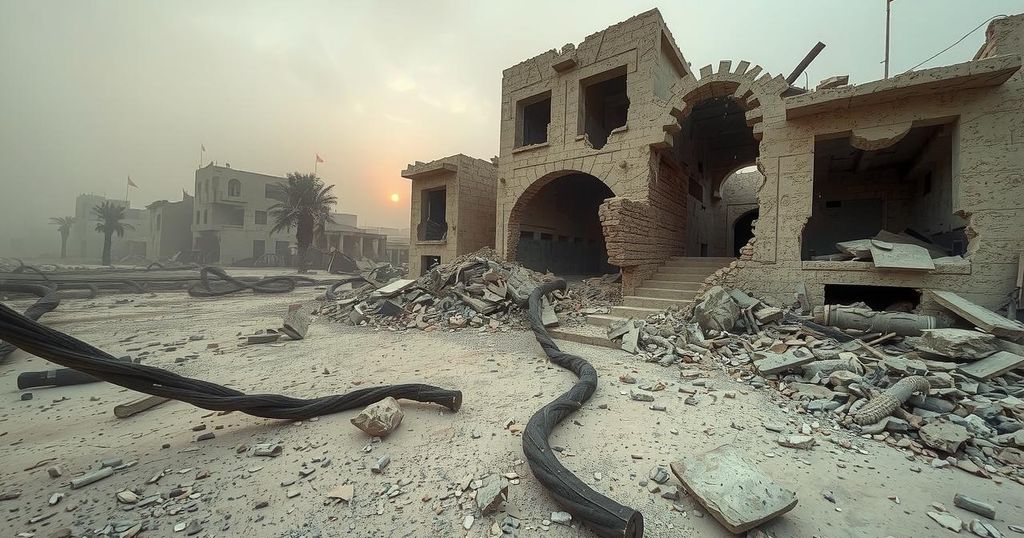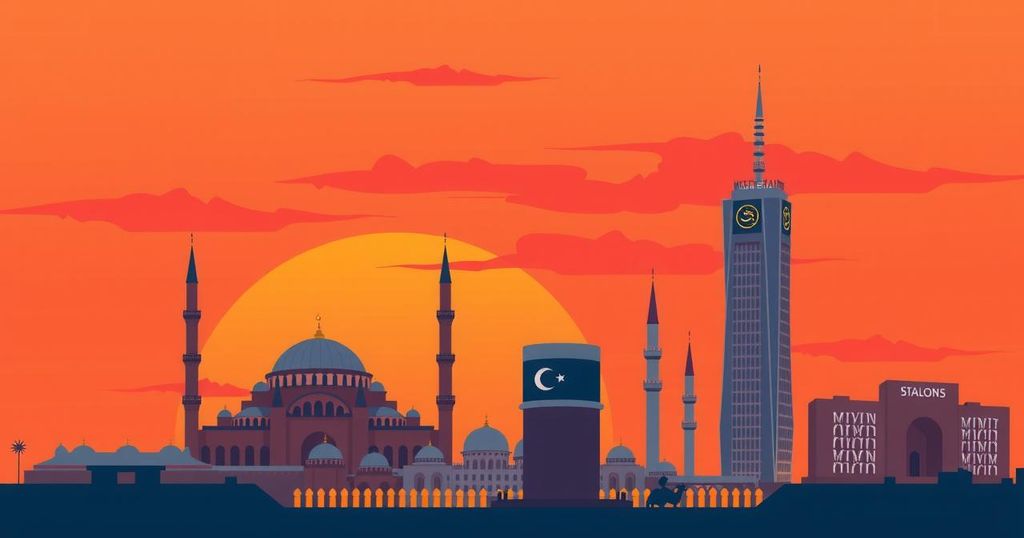Israel threatens to resume military action against Hamas unless hostages are released by Saturday, inciting protests in Tel Aviv against Prime Minister Netanyahu’s government. Jordanian officials have condemned plans for Palestinian resettlement, affirming their support for a two-state solution. Amidst rising tensions, mediators work to uphold the ceasefire while navigating complex international and regional dynamics.
Israel has threatened to escalate its military actions against Hamas, with Prime Minister Benjamin Netanyahu insisting that hostages must be released by noon on Saturday, or conflict will resume. Meanwhile, protests in Tel Aviv have intensified against this potential resumption of war, highlighting public dissent towards Netanyahu’s government. Protesters have criticized the government’s fragmented approach to securing the release of hostages, claiming a comprehensive deal could have been achieved more effectively.
As tensions rise, Hamas has accused Israel of breaching terms of a ceasefire by obstructing crucial humanitarian aid deliveries, while Netanyahu counters that Hamas is the true violator. The Israeli military is preparing for renewed hostilities and has mobilized reservists to positions near Gaza.
Jordan’s Foreign Minister Ayman Safadi has firmly stated that Palestinians cannot be resettled forcibly from their land, reinforcing Jordan’s stance against any displacement plans put forth by external powers, including the United States. King Abdullah II of Jordan has also expressed opposition to President Trump’s proposals to relocate Palestinians from Gaza, advocating instead for a just peace that adheres to the two-state solution.
In recent discussions with Trump, King Abdullah was pressed on Jordan’s role in a potential resettlement plan but reiterated his commitment to safeguarding Jordan’s national interests. Notably, Nawaf Salam, the newly appointed Prime Minister of Iraq, condemned proposals to transfer Palestinians to other nations, describing them as “morally, politically, and legally” questionable, calling for Arab solidarity against these plans.
Amid these developments, the situation in the region remains precarious, with Israel on the verge of renewed conflict while diplomatic efforts strive to maintain the fragile ceasefire. The upcoming days are crucial in determining whether tensions will escalate further or if a resolution can be reached.
The ongoing tensions in the Israel-Gaza conflict have led to significant protests against Prime Minister Netanyahu’s approach, as well as pronounced opposition from Jordanian officials to any attempts at Palestinian resettlement. With a imminent deadline for hostage negotiations set by Israel, international mediators are urgently working to maintain the peace established by the current ceasefire. The regional response to proposals regarding the displacement of Palestinians indicates a strong commitment to preserving their rights and territorial integrity.
Original Source: www.aljazeera.com




